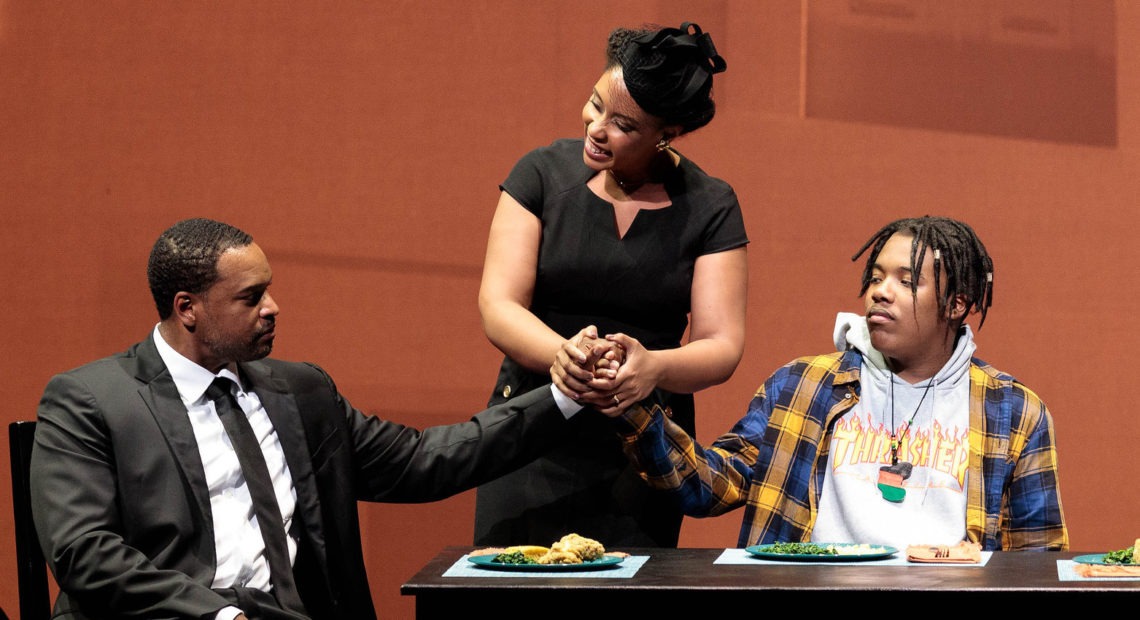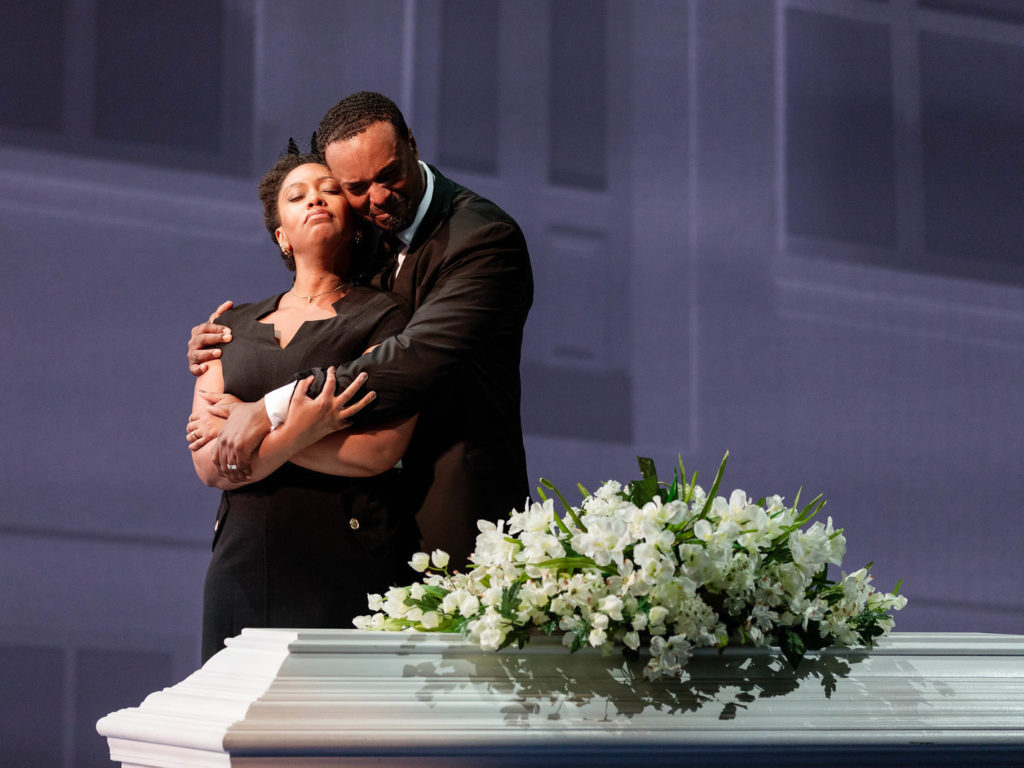
New Opera ‘Blue’ Takes On The Tragedy Of A Police Shooting
PHOTO: Kenneth Kellogg, Briana Hunter and Aaron Crouch play The Father, The Mother and The Son in the world premiere of Blue at the 2019 Glimmerglass Festival. CREDIT: Karli Cadel/Courtesy of the festival
LISTEN
BY JEFF LUNDEN
Opera is an art form well-suited to big emotions and tragic stories, often set in the past. But a new opera, Blue, grapples with a more contemporary tragedy — the killing of an unarmed black man at the hands of a police officer.
Blue premiered on July 14 at the Glimmerglass Festival in New York state, where it is set to run through Aug. 22. The opera takes on a dark story about race in America. A young black couple falls in love and has a baby boy. The son becomes a rebellious teenager and is shot and killed by a police officer at a protest. The second act of the opera explores the aftermath of that traumatic event.
Tazewell Thompson, Blue‘s director as well as the writer of its libretto, says that he’s wanted to explore the opera’s more private, familial themes for some time now.
“I knew that I wanted to write the story behind the story of the headlines,” Thompson says. “That was in my head all along. That was in my heart. That was in my system. I wanted that story — how it affects the family. I really wanted to get to know the parents.”
Further complicating the opera’s devastating tragedy, one of those parents is a police officer himself. Tony Award-winning composer Jeanine Tesori, who wrote the score for Blue, proposed this character detail when she and Thompson began working on the opera.
“I haven’t seen many stories about African American police officers and the incredible challenge that they face,” she says. “It’s also Tazewell’s story. This is deeply Tazewell’s story,” she says, describing the opera’s inspiration.

Briana Hunter as The Mother and Kenneth Kellogg as The Father in the 2019 premiere of Jeanine Tesori and Tazewell Thompson’s Blue.
CREDIT: Karli Cadel/Courtesy of The Glimmerglass Festival
Thompson lives in Harlem, where the opera is set and he’s had his own run-ins with the police. “In my own neighborhood, I was frisked and slammed against the wall,” Thompson says. He remembers another incident he had where police officers mistook his identity for someone else’s and surrounded him in a subway station. “I was scared. One police officer had his hand on his holster. And when they realized they had the wrong person, they didn’t say ‘Oh, we’re sorry.’ They said, ‘stay out of trouble.'”
As he was writing the opera, Thompson spoke with both black police officers and parents to inform his work. Those conversations are behind a scene in Blue when the father, in the hopes of keeping his child safe, gives his son “the talk” — the talk, that is, about how to behave when he sees a cop. “Every parent that I interviewed — black parents — they had this talk with their sons at a very young age,” Thompson says.
Despite “the talk,” the son in the opera becomes a victim of police violence. “Performing this comes at a cost, I think, to all of us,” says mezzo-soprano Briana Hunter, who plays the anguished mother in Blue. “It’s one that we all think is worth paying.”
Hunter says that performing in Blue offers an important space for processing and communication. “Very rarely do we get to so directly communicate our feelings about what’s going on in the world,” Hunter reflects. “It’s allowed us to kind of grieve and process a lot of trauma.” She hopes audiences who see the opera can process those feelings, too.















